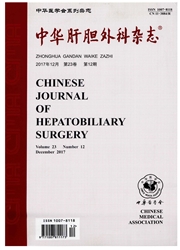

 中文摘要:
中文摘要:
器官移植是治疗终末期脏器功能衰竭最有效的手段。公民逝世后器官捐献已成为我国移植供器官的主要来源。目前,器官保护技术在临床实践中应用广泛,对提升移植器官质量,改善移植预后发挥了关键作用,但相关技术选择及应用缺乏统一共识。因此,亟待建立相关临床实践指南,促进我国器官移植工作更规范、有效、安全地开展。中国医师协会器官移植医师分会、中华医学会外科学分会器官移植学组及中国肝移植注册中心科学委员会组织专家,基于国内外移植器官保护的基础与临床实践,根据牛津循证医学证据分级和GRADE推荐意见系统,重点针对肝脏、肾脏、胰腺、小肠、心脏、肺脏,从器官获取、质量评估、保存液选择及器官保存修复、转运手段等方面,同时对新兴的机械灌注保存、修复技术进行了讨论,制定了《中国移植器官保护专家共识》,以期为临床选择科学、规范的供器官保护策略提供方案。
 英文摘要:
英文摘要:
Organ transplantation is the most effective treatment for end stage organ failure, While organ donation after a citizen % death has been the main source of donor organ for transplantation in China. Extensive application of organ preser- vation and repair techniques have played key roles in improving the quality of donor organs and in prognosis. A guideline on clinical practice is urgently needed for effective and standardized application of these techniques. Experts of the Chinese College of Transplant Doctors, the Division of Organ Transplantation,Surgery Branch, CMA and the China Liver Transplant Registry (CLTR) Scientific Committee met to jointly arrive at this expert consensus which is based on current evidences on basic and clin- ical practice of organ procurement, quality evaluation, organ preservation and repair relating to liver, kidney, pancreas, in- testine, heart and lung transplantations. The recommendations were composed using the Oxford evidence classification and the GRADE system. This consensus aims to optimize strategies in providing a scientific and a standard guideline for clinical trans- plantation practice.
 同期刊论文项目
同期刊论文项目
 同项目期刊论文
同项目期刊论文
 期刊信息
期刊信息
